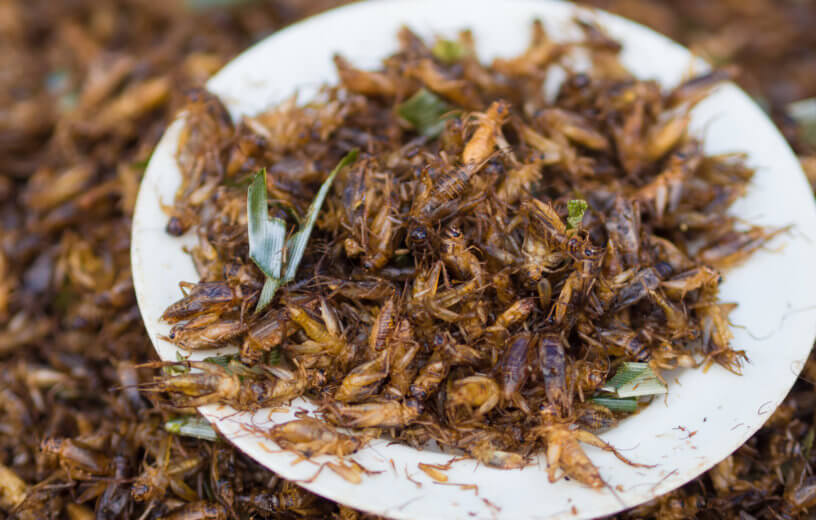JOONDALUP, Australia — The notion of eating an insect is enough to make most westerners’ stomachs crawl, but on a global scale billions of people eat insects day in and day out. Along the spectrum of edible insects, crickets stand above the rest thanks to their high population numbers and all the protein/other nutrients they offer. Consequently, many have pondered if cricket-based food products are the answer to humanity’s ever-growing hunger issue. For instance, by 2050 it’s estimated that there will be 9.7 billion mouths to feed on Earth.
A new study from Edith Cowan University, though, finds crickets may not be a suitable food choice for many among us. They report that cricket food items contain allergy-causing proteins capable of posing “serious health risks” for people with shellfish allergies. In all, the research team has uncovered 20 specific proteins in cricket foods that may induce a serious allergic reaction.
“More than 2 billion people around the world already eat insects on a daily basis and they could be a sustainable solution, providing protein that complements traditional animal-based protein sources,” says study leader Professor Michelle Colgrave from ECU’s School of Science and the CSIRO in a release. “Crickets are high in protein, nutrient dense and considered environmentally friendly. Numerous studies have shown eating insects provide benefits to gut health, lowering blood pressure while being high in antioxidants.”
Crickets and many other insects are attractive as food items due to all the protein they offer. Now, study authors say bugs’ allergic properties are a potential dealbreaker when it comes to fighting global hunger.
“This research showed a significant overlap in allergenic proteins found in cricket food products and those found in shellfish like crabs and prawns,” Professor Colgrave adds. “That’s because crickets, mealworms and other insects are closely related to crustaceans. Shellfish allergies affect up to two per cent of people globally, but varies according to age and region, and there’s a good chance that people allergic to shellfish will also react to insects.”
All of this doesn’t necessarily mean insects can’t be used at all to help feed those in need; but such food items will have to undergo extensive testing and subsequent labeling to ensure no one eats anything that may hurt them.
To uncover crickets’ allergic properties, study authors compared proteins taken from roasted crickets and cricket powder products with known allergens.
The study is published in Food Chemistry.
